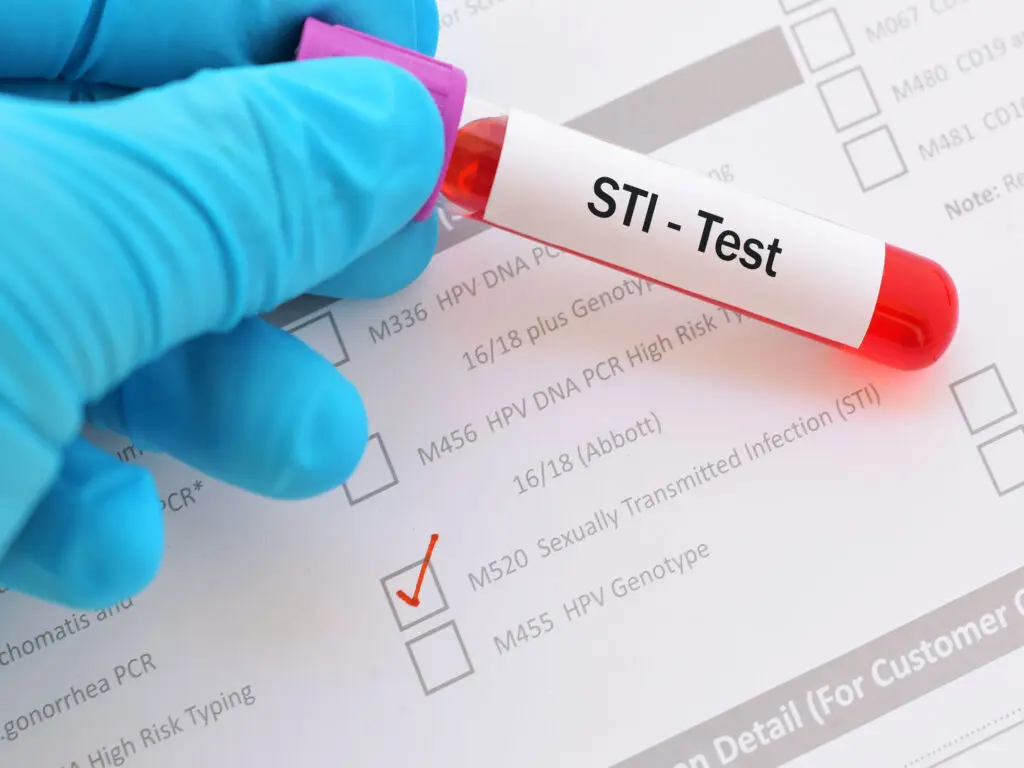What Should You Teach Your LGBTQ+ Teen About Safe Sex?
When guiding your LGBTQ+ teen about safe sex, embrace their diverse identities, prioritize clear consent, discuss safe practices and contraception, and address STI prevention. Providing access to LGBTQ+ affirming healthcare supports their sexual well-being. Remember to empower them to make informed decisions and prioritize their health.
Key Takeaways
- Discuss inclusive safe sex practices beyond binary genders.
- Educate on LGBTQ+-specific contraception options.
- Address STI prevention and testing tailored to LGBTQ+ needs.
- Promote LGBTQ+-friendly healthcare and resources.
- Empower informed decisions on sexual health for LGBTQ+ teens.
Understanding LGBTQ+ Identities

Understanding LGBTQ+ identities is essential for creating a supportive environment for your teen. When it comes to gender identity, it’s important to recognize that not everyone fits into traditional binary categories. Your teen may identify as male, female, both, neither, or somewhere along the gender spectrum. Being open to understanding and accepting their gender identity can make a world of difference in their emotional well-being.
Coming out is a significant moment in an LGBTQ+ person’s life. It’s a deeply personal decision that should be respected and supported. Your teen may choose to come out to you, their friends, or others at their own pace.
Creating a safe space where they feel comfortable and loved regardless of their sexual orientation or gender identity is vital. Let them know that you’re there to listen, support, and advocate for them as they navigate their journey.
Importance of Consent
In ensuring a safe and respectful approach to sexual interactions, prioritizing clear and enthusiastic consent is vital. Consent education is an essential aspect of sexual health for LGBTQ+ teens. It involves understanding that consent must be freely given, reversible, informed, enthusiastic, and specific.
Encouraging open communication about boundaries and respect is key to fostering a culture of consent.
Teaching your LGBTQ+ teen about the importance of setting and respecting boundaries helps create a safe space for exploring their sexuality. Emphasize the significance of respecting not only their own boundaries but also those of their partners.
Discussing consent empowers them to advocate for themselves and others in any intimate situation.
Safe Sex Practices for LGBTQ
Prioritize your LGBTQ+ teen’s sexual health by discussing and implementing safe sex practices that are inclusive and tailored to their specific needs and identities.
When it comes to safe sex practices for LGBTQ individuals, it’s essential to take into account their unique experiences and challenges. Understanding and respecting their gender expression is fundamental in creating a safe space for discussions about sexual health. LGBTQ rights play a significant role in ensuring access to inclusive sexual health education and resources.
Mental health is also an important aspect to take into consideration when discussing safe sex practices with your teen. LGBTQ youth often face higher rates of mental health issues due to societal stigma and discrimination. Providing a supportive and understanding environment can positively impact their mental well-being and empower them to make informed decisions regarding their sexual health.
Community support is essential in creating a safe and accepting space for LGBTQ individuals to access information and resources related to safe sex practices. Encouraging your teen to engage with LGBTQ-friendly organizations and support groups can provide them with additional knowledge and support.
Contraception Options
When it comes to contraception options for LGBTQ+ teens, there are several choices available to help you stay safe and protected.
Condoms are a great way to prevent STIs and pregnancy, while hormonal birth control can offer additional protection.
It’s also important to explore different barrier methods to find what works best for you and your partner.

Condoms for Protection
Consider incorporating condoms into your discussions about contraception with your LGBTQ+ teen as they’re a reliable method for protection against sexually transmitted infections.
When choosing condoms, make sure they’re the right size to prevent slippage or breakage. Additionally, opt for condoms with lubrication to reduce the risk of tears during use.
Proper use is vital. Teach your teen how to correctly put on a condom, emphasizing the importance of leaving space at the tip and unrolling it all the way down. After ejaculation, hold the base when withdrawing to prevent slippage.
To dispose of condoms, wrap them in tissue and throw them in the trash; never flush them down the toilet.
Empower your teen with this knowledge so they can make informed decisions about their sexual health. Encourage open communication and reassure them that using condoms is a responsible choice that shows care for both themselves and their partner.
Hormonal Birth Control
To further expand your discussions on contraception with your LGBTQ+ teen, you can explore hormonal birth control options as another avenue for protection and reproductive health management.
Hormonal birth control methods, such as pills, patches, injections, and hormonal IUDs, work by regulating hormone levels in the body to prevent pregnancy. These options aren’t only effective in preventing unwanted pregnancies but can also help LGBTQ+ teens manage conditions like polycystic ovary syndrome (PCOS) or endometriosis.
When considering birth control options, it’s vital to have open and honest conversations with healthcare providers who are knowledgeable about LGBTQ+ healthcare needs. They can provide guidance on choosing the right method based on your teen’s individual health considerations and preferences.
It’s crucial for LGBTQ+ teens to feel empowered and supported in their decisions regarding hormonal regulation and reproductive health.
Barrier Methods Overview
Explore various barrier methods as contraception options to enhance your understanding of safer sex practices for you and your partner. Barrier methods are forms of contraceptives that create a physical barrier to prevent sperm from reaching an egg, reducing the risk of pregnancy and sexually transmitted infections (STIs).
Condoms, both external (male) and internal (female), are popular barrier methods that are highly effective when used consistently and correctly. Dental dams are another option for oral sex to reduce the spread of STIs.
When engaging in sexual activities, it’s vital to prioritize safer sex practices. Contraceptive methods like barrier methods not only provide protection against unintended pregnancies but also play a significant role in preventing the transmission of STIs.
It’s crucial to communicate openly with your partner about using barrier methods to ensure mutual understanding and consent. By incorporating barrier methods into your sexual health routine, you can take proactive steps towards a safer and healthier sexual experience for both you and your partner.
STI Prevention and Testing
When discussing STI prevention and testing with your LGBTQ+ teen, it’s vital to take into account the unique risk factors they might face.
Talking about the significance of regular testing can help guarantee early detection and treatment if needed.
Exploring prevention strategies together can empower your teen to make informed decisions about their sexual health.

STI Risk Factors
Understanding the risk factors for sexually transmitted infections (STIs) is vital for taking proactive steps towards prevention and testing. When it comes to STIs, conducting a risk assessment is essential. Factors such as engaging in unprotected sex, having multiple partners, or using substances that may lead to risky behavior can increase the likelihood of contracting an STI.
It’s important to take into account vulnerability factors as well. LGBTQ+ individuals may face unique challenges such as stigma, discrimination, or inadequate access to healthcare, which can impact their risk of STIs. By recognizing these risk and vulnerability factors, you empower yourself to make informed decisions about your sexual health.
Testing Importance
Recognizing the importance of regular testing for sexually transmitted infections (STIs) is a vital step towards safeguarding your sexual health and well-being. LGBTQ+ teens, just like anyone else, should prioritize getting tested regularly, especially if they’re sexually active.
The recommended testing frequency may vary depending on your sexual activity and risk factors, so it’s important to have open conversations with healthcare providers to determine the best testing schedule for you.
Confidentiality concerns are valid for many LGBTQ+ teens when it comes to STI testing. It’s necessary to find a healthcare provider or clinic that respects your privacy and confidentiality. You have the right to confidential testing and treatment, and healthcare professionals should uphold this right without judgment.
If you have concerns about confidentiality, don’t hesitate to discuss them with your provider or seek out LGBTQ+ friendly clinics that prioritize your privacy.
Regular testing not only helps you stay informed about your sexual health but also contributes to the overall well-being of yourself and your partners. Prioritizing testing and addressing confidentiality concerns will empower you to make informed decisions about your sexual health.
Prevention Strategies
Ensuring you have access to essential STI prevention strategies and regular testing is important in safeguarding your sexual health as an LGBTQ+ teen. Conducting a thorough risk assessment can help you understand your potential exposure to STIs and tailor prevention methods accordingly.
Communicating openly and honestly with your partners about STI history, testing, and safe sex practices is essential in reducing transmission risks. Utilizing communication strategies such as active listening and setting boundaries can foster a safe and respectful environment for discussing sexual health.
Seeking peer support from other LGBTQ+ individuals can provide a sense of community and valuable insights into managing safe sex practices. Community resources, such as LGBTQ+ health centers and online platforms, offer information on STI prevention, testing locations, and support services.
Addressing Discrimination and Stigma
Have you considered how to help your LGBTQ+ teen navigate discrimination and stigma when it comes to discussing safe sex? Addressing discrimination and stigma is vital in promoting acceptance and fostering understanding.
As a parent or caregiver, it’s important to create a safe and supportive environment where your teen feels comfortable discussing these challenges.
Combatting discrimination involves educating your teen about their rights and helping them develop strategies to handle discriminatory situations. Encourage open conversations about LGBTQ+ issues and provide resources for support.
Addressing stigma requires challenging stereotypes and promoting positive representations of LGBTQ individuals. Emphasize the importance of self-acceptance and celebrate your teen’s identity.
Communication and Boundaries

Establishing clear communication and boundaries with your LGBTQ+ teen is essential for promoting healthy relationships and ensuring their well-being. Encourage open dialogue where they feel safe discussing their feelings, concerns, and questions with you. By fostering a supportive environment, you can help them understand the importance of setting boundaries in all relationships.
Teach your teen about the significance of consent and how to recognize and respect personal boundaries. Emphasize that consent must be freely given without pressure or coercion. Help them understand that consent is a crucial aspect of healthy relationships and that it’s okay to say no if they’re uncomfortable.
Model healthy communication and boundaries in your own relationships to set a positive example for your teen. Encourage them to express their feelings openly and honestly while also respecting the boundaries of others. By instilling these values early on, you equip your LGBTQ+ teen with the tools to cultivate respectful and fulfilling relationships.
Seeking LGBTQ+-Friendly Healthcare
When it comes to supporting your LGBTQ+ teen’s overall well-being, finding healthcare providers who are knowledgeable and affirming of their identity is vital. Seeking LGBTQ+-friendly healthcare can be fundamental in ensuring your teen receives the respectful and inclusive care they deserve. It’s imperative to find support in healthcare settings where your teen feels safe and understood.
Advocacy groups focused on LGBTQ+ health can be valuable resources in helping you locate healthcare providers who are sensitive to your teen’s unique needs. These groups often have directories of LGBTQ+-friendly healthcare professionals, making the search process more manageable for you and your teen. Additionally, they can offer guidance on how to navigate healthcare systems and advocate for inclusive care.
Resources and Support for Teens
To assist your LGBTQ+ teen in accessing the support they need, consider exploring available resources and networks tailored to their unique experiences. Support networks specifically designed for LGBTQ+ youth can offer a safe space for your teen to connect with peers facing similar challenges. Online forums provide a platform for them to seek advice, share experiences, and access valuable information regarding safe sex practices and LGBTQ+ health.
Educational workshops are another beneficial resource that can equip your teen with essential knowledge about safe sex, consent, and healthy relationships. These workshops often cover a wide range of topics, including sexual health, gender identity, and addressing societal pressures.
Counseling services tailored to LGBTQ+ individuals can offer your teen a supportive environment to address any mental health concerns, explore their identity, and seek guidance on safe sex practices. Encouraging your teen to engage with these resources can empower them to make informed decisions and prioritize their well-being.
Frequently Asked Questions
How Can Lgbtq+ Teens Navigate Dating Apps Safely?
Using dating apps safely involves establishing clear boundaries and being cautious. Seek out LGBTQ+ representation to feel validated and secure. Trust your instincts and communicate openly with potential partners about your comfort levels and expectations.
What Should Lgbtq+ Teens Know About Hormone Therapy and Safe Sex?
When considering gender identity and hormone therapy, it’s important for LGBTQ+ teens to understand how these aspects may impact safe sex practices. Always prioritize open communication, respect consent boundaries, and seek reliable resources for thorough information.
Are There Lgbtq+-Specific Resources for Dealing With Sexual Assault?
When dealing with sexual assault, it’s important to know that there are LGBTQ+-specific supportive resources available. These resources offer essential support, empowerment, and a safe space for the community to seek help and healing.
How Can Lgbtq+ Teens Address Body Image Issues in Safe Sex Discussions?
When talking about safe sex with LGBTQ+ teens, it’s important to address body image issues. Encourage body positivity and self-confidence. Validate their feelings and offer resources that support a healthy self-image. Your comfort matters.
What Are the Legal Rights of Lgbtq+ Teens Regarding Sexual Health Services?
You have the legal right to consent to sexual health services as an LGBTQ+ teen. Confidentiality laws protect your privacy when seeking these services. It’s important to know your rights and feel empowered in your healthcare decisions.
Conclusion
In summary, it’s essential to have open and honest conversations with your LGBTQ+ teen about safe sex. By understanding their identities, discussing consent, practicing safe sex, exploring contraception options, addressing discrimination, and seeking LGBTQ+-friendly healthcare, you can support their sexual health and well-being.
Remember, you aren’t alone in this journey – there are resources and support available to help navigate these important conversations and guarantee your teen has the information they need to make informed decisions. Stay informed, stay supportive, and prioritize your teen’s health and happiness.

Hey there! 👋 I’m a proud mom and passionate writer, sharing my parenting journey. 📝 Join me as I navigate the ups and downs of motherhood, offering tips, advice, and a sprinkle of humor along the way. 🌟







